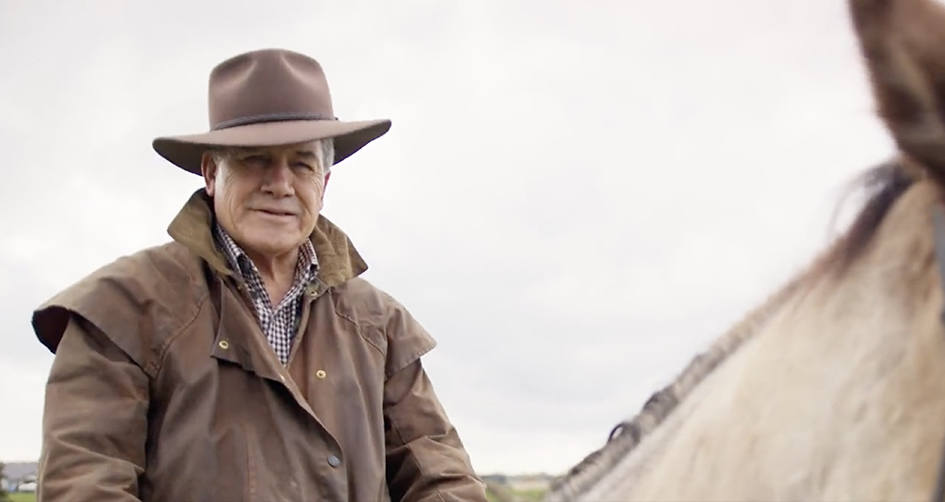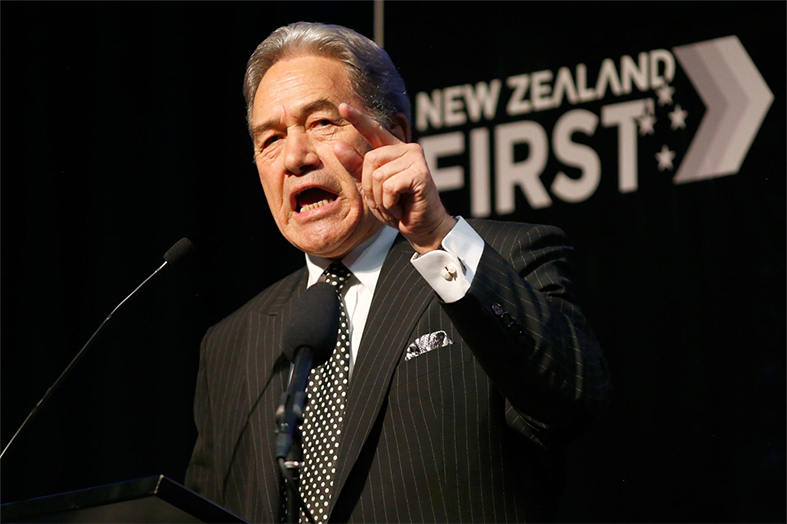by Brian de Lore
Published 06 November 2023
If TAB NZ ran a book on the next Minister of Racing, Winston Peters would be $1.50 and firming to have his third term in the role. Who else could be a legitimate candidate in the coalition negotiations underway this week?
Six months ago you could have bet 50/1, but now Winston has firmed into $1.50, and is better value than the Melbourne Cup favourite Vauban, which has eased from $3.50 to $4.20 in the last few days and must overcome the obstacles of history to win the race.
One United Kingdom punter has a $1,000 fifth leg multi riding on Vauban to win the Cup to win $1 million, and many supposedly very good judges of form are saying Vauban is a certainty.
But just like Winston getting the nod for his third stint as the Government rep for racing, a cynical school of thought exists about Vauban’s favouritism in this year’s Cup.
Here it is:
Vauban hasn’t raced for 92 days, and since 1991, only one horse has won the Cup with a break of 60 days or longer – Cross Counter in 1991 – and 48 horses have tried.
Vauban hasn’t raced for 92 days – three years for Winston
Vauban has won his last two starts impressively, but his previous eight starts were all in hurdle races. Six of his seven wins occurred in soft going, but with the temperature at Flemington expected to rise to 29 degrees, connections will get a Good4 unless blessed with the chance of a late afternoon thunderstorm.
Vintage Crop won two races over hurdles before his Cup win in 1993, but before that, you have to go back to the 19th Century to find a hurdler or steeplechaser winning the Cup – Malua in 1884 and Sheet Anchor in 1885.
Since 1991, five Northern Hemisphere starters in the Cup have started favourite at odds of 4/1 or less. Not one has finished in a place, although the northern invaders have a good overall record with 311 out of 736 starters in those 32 years. A level stake on all northern horses during that time would have reaped a profit of 40 percent on investment.
Without A Fight is a good chance to complete the Cup double.
Winston lost his last start and hasn’t raced for three years, but the $1.50 is still a good bet. He’s a known first-upper and a very cunning race tactician who rides his own race – you’ve all seen him riding that horse on TV in his pre-election campaign.
And you could argue that Winston has undergone a solid preparation because he’s the only politician who has produced a pre-election racing policy, giving notice that he’s still interested in the future of racing, albeit his previous race form lacks consistency.

NZ First Racing Policy:
Racing
The racing industry has long been an integral part of New Zealand’s economic wealth creation, lifestyle and entertainment.
This industry should have a realisable aspiration to contribute $3.5bn to our GDP, a sum equivalent to this industry’s contribution to Ireland’s economy. We have the land, the grass and animal food, and the people to be a racing world leader.
Currently, the industry employs thousands of mainly young New Zealanders with a reach to associated industries that includes thousands more. This industry employs over 15,000 people either directly or indirectly, with a further 12,000 associated with the racing infrastructure on a voluntary basis.
If regular racegoers are included, then well over 55,000 New Zealanders have a weekly involvement. To truly become internationally renowned, planning, rationalisation, and collaboration have to become paramount.
As well as potentially contributing much more to our economy, this industry has the imminent prospect of trembling its export wealth where racing stock is transported internationally by air. The recent TAB NZ Entain partnership has boosted stakes money for racing. But with guaranteed stakes for only the next five years a longer-term plan is required.
For this industry to be successful its control must be returned to the hands of expert racing people with a sound knowledge of their industry and democratically elected and having the respect of their codes. Having “skin in the game” leads to better decision making.
New Zealand First had the Racing Act 2020 passed as a result of the Messara Report recommendations that also called for continued consultation with all stakeholders.
New Zealand First provided funding for the Cambridge, Awapuni, and Riccarton all weather tracks, to ensure race days were not cancelled for weather events which were costing the industry millions with each cancellation. We recognised the economic potential of the racing sector and were responsible for initiatives to continue its growth.
Policy:
- Wise investment in racing has made, and will continue to make, a growing contribution to this country’s GDP. And we will work with New Zealand Trade and Enterprise to develop export channels and opportunities.
- New Zealand First believes that the long-term sustainability of the industry and racing self-determination, are achievable objectives. We will promote at government level that racing expertise and knowledge makes this a highly specialised industry. That can only come from the government respecting stakeholders and all participants.
- New Zealand First believes that in a computerised age, the administrative costs in this industry are far too high. These costs must be addressed so that the most critical person in the racing industry, the owner, gets a much fairer go.
- New Zealand First will work towards greater parity with raceday prize money in NSW, so that sound investment is the outcome and no longer a costly hobby. There was a time in New Zealand Racing where winning just one race would pay for the cost of the horse for the next twelve months. That must not go on being a distant nostalgic prospect.
- New Zealand First policy is to properly market the industry, using the very best of the latest technology, to attract the rapid growth of younger participants, future owners, and breeders.
- As with any industry, a realistic sustainable growth plan is required and critical and New Zealand First will work towards that.
- The safety and the health of racing stock, be they horses or greyhounds, requires constant vigilance as does health, and safety, and the mitigation of gambling harm.
There are political parties proposing to fund their tax cuts through online wagering operators.
The TAB has estimated there is $400 million leaking to offshore wagering operators per year.
That tax policy expects to raise $170 million from this source (43% tax rate). That is not credible. This policy will boost the profits of offshore wagering corporations, at the expense of the funding of NZ Racing, sport, and the community.
The social licence that gambling operates in New Zealand, including Racing, Sport, Lotto, and the pokies, is that profits are returned to the community not corporations.
If that policy is implemented, it will cost Racing & Sport the $100 million that Entain committed to pay if geoblocking was introduced into New Zealand.
A large number of these operators are located in tax havens.
These on-line operators do not have the ‘problem gambling harm minimisation’ requirements of New Zealand operators and will prey on the most vulnerable.

